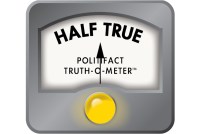Wyoming Wants To Make Its Five-Year Federal Rural Health Funding Last ‘Forever’
State officials believe they’ve found a way to extend the life of federal Rural Health Transformation Program money Wyoming is receiving as part of last summer’s One Big Beautiful Bill Act — by investing most of it.
States Race To Launch Rural Health Transformation Plans
Every state will receive at least $100 million annually from the federal Rural Health Transformation fund, but some scored millions more based on how the Centers for Medicare & Medicaid Services judged the “quality” of their plans and willingness to pass policies embracing “Make America Healthy Again” initiatives.
Nueva tarifa de $100.000 por visa impuesta por Trump afecta a trabajadores de salud rurales
El sistema de salud en Estados Unidos depende del personal nacido en el extranjero para cubrir plazas como médicos, enfermeros, técnicos y otros profesionales, especialmente en zonas rurales.
Rural Health Providers Hit by $100K Trump Visa Fee
Get our weekly newsletter, The Week in Brief, featuring a roundup of our original coverage, Fridays at 2 p.m. ET.
Rural Health Providers Could Be Collateral Damage From $100K Trump Visa Fee
Dozens of health care organizations have asked the Trump administration to shield the doctors, nurses, and techs they need to fill shortages from the president’s new $100,000 visa fee for skilled foreign workers. So far, there’s no sign of a reprieve.
Gobierno prometió “transparencia radical”, pero oculta solicitudes de fondos para la salud rural
Drones que entregan medicamentos y telesalud en bibliotecas locales son algunas de las ideas que líderes estatales acaban de presentar para gastar su parte de un programa federal de salud rural de $50.000 millones.
Feds Promised ‘Radical Transparency’ but Are Withholding Rural Health Fund Applications
Proposals from states that have shared their applications to a new $50 billion rural health program include using drones to deliver medication, installing refrigerators to expand access to healthy produce, and bringing telehealth to libraries, day cares, and senior centers.
Concerns Over Fairness, Access Rise as States Compete for Slice of $50B Rural Health Fund
Amid public forums and local cries for help, states are also talking with large health systems, technology companies, and others amid intensifying competition for shares of a $50 billion fund to improve rural health.
RFK Jr. Misses Mark in Touting Rural Health Transformation Fund as Historic Infusion of Cash
The health secretary’s statement doesn’t consider the impact that the Medicaid cuts advanced in the same law will have on health care in rural America.
Shutdown Halts Some Health Services as Political Risks Test Parties’ Resolve
Congressional Democrats and Republicans are at an impasse in negotiations. Which side will blink first?
Batalla para proteger a los pacientes de deudas médicas se traslada a los estados
A pesar de algunos avances este año, los recientes reveses en las legislaturas más conservadoras dejan claro lo difícil que es proteger a los pacientes.
As Trump Punts on Medical Debt, Battle Over Patient Protections Moves to States
Some states are enacting medical debt laws as the Trump administration pulls back federal protections. Elsewhere, industry opposition has derailed legislation.
Collaborative Networks Become Popular Lifeline for Rural Hospitals
Get our weekly newsletter, The Week in Brief, featuring a roundup of our original coverage, Fridays at 2 p.m. ET.
Luego de los recortes de Trump a la salud, estados enfrentan decisiones presupuestarias difíciles
En conjunto, estas reducciones representan un cambio radical en la forma en que se financian y se ofrecen los programas estatales de salud.
In the Fallout From Trump’s Health Funding Cuts, States Face Tough Budget Decisions
The Trump administration has pushed a significant amount of health costs to states, whose budgets may already be strained by declining state tax revenues, a slowdown in pandemic spending, and economic uncertainty. State and local governments now face difficult decisions.
Instead of Selling, Some Rural Hospitals Band Together To Survive
Independent and rural hospitals are collaborating with their neighbors to shore up their finances instead of joining larger health systems to stay afloat.
Experts Say Rural Emergency Rooms Are Increasingly Run Without Doctors
Some doctors and the groups that represent them say physicians’ extensive training leads to better emergency care, and that some hospitals are trying to save money by not hiring them. They support new laws in Indiana, Virginia, and South Carolina that require physicians to be on-site 24/7.
Public Health Officials Move To Protect Native Americans Against Measles Outbreak
Get our weekly newsletter, The Week in Brief, featuring a roundup of our original coverage, Fridays at 2 p.m. ET.
Tribal Health Officials Work To Fill Vaccination Gaps as Measles Outbreak Spreads
Native American tribes and health organizations are hosting clinics and calling patients to counteract low measles vaccination rates and limited access to health care as the disease spreads across the country.
Thune Says Health Care Often ‘Comes With a Job.’ The Reality’s Not Simple or Straightforward.
Sixty percent of Americans have health insurance through their own workplace or someone else’s job. But not all employers provide health insurance or offer plans to all their workers. When they do, cost and quality vary widely, making Thune’s statement an oversimplification.




















